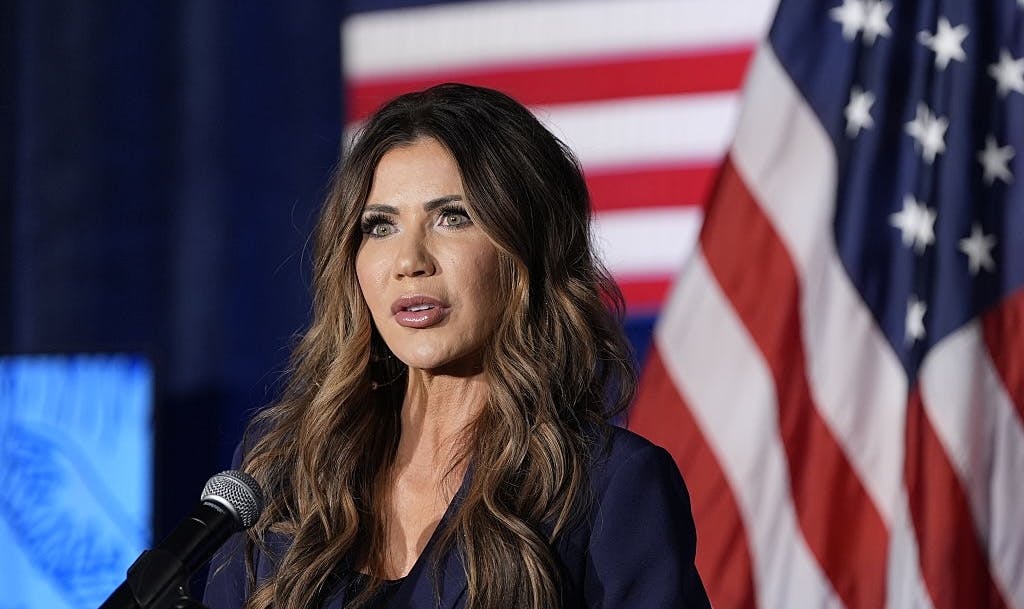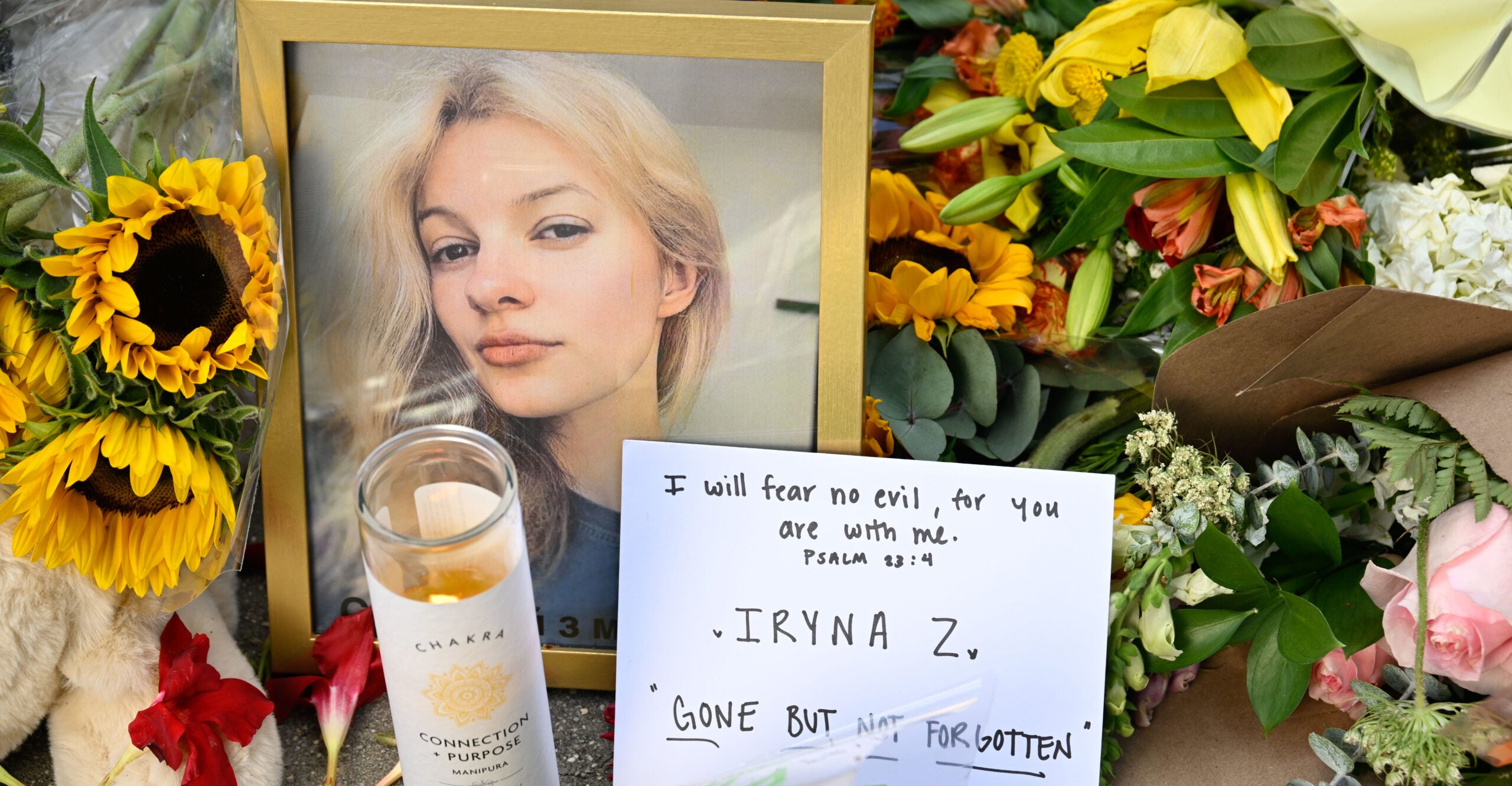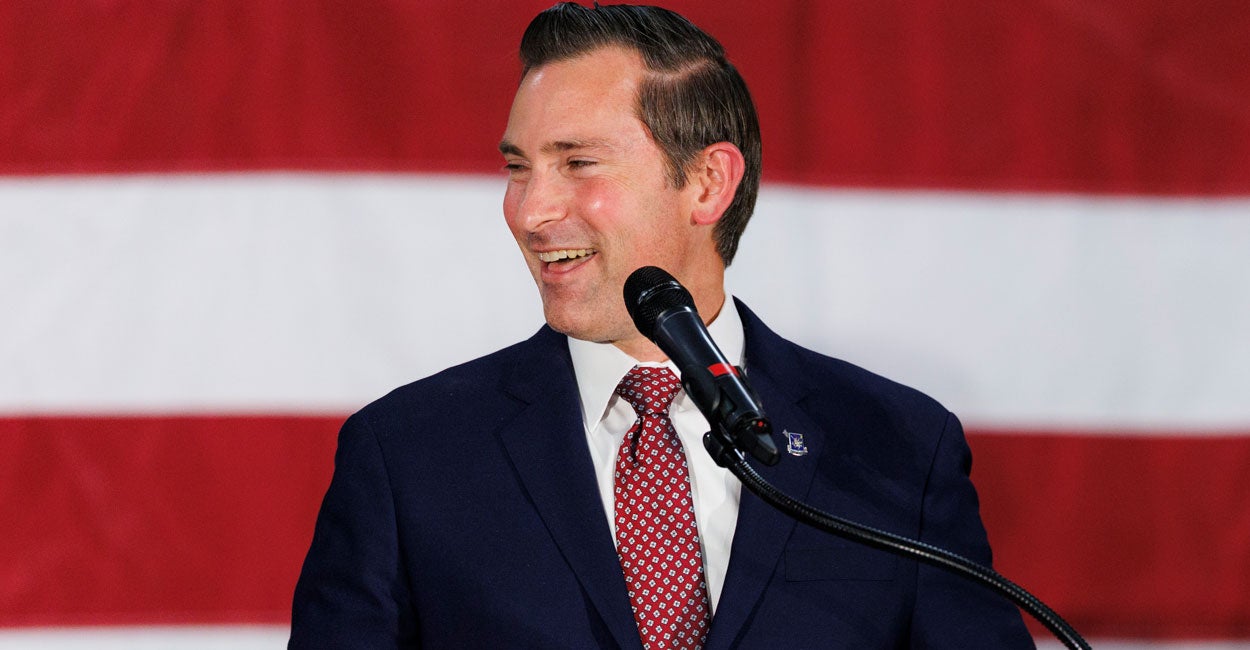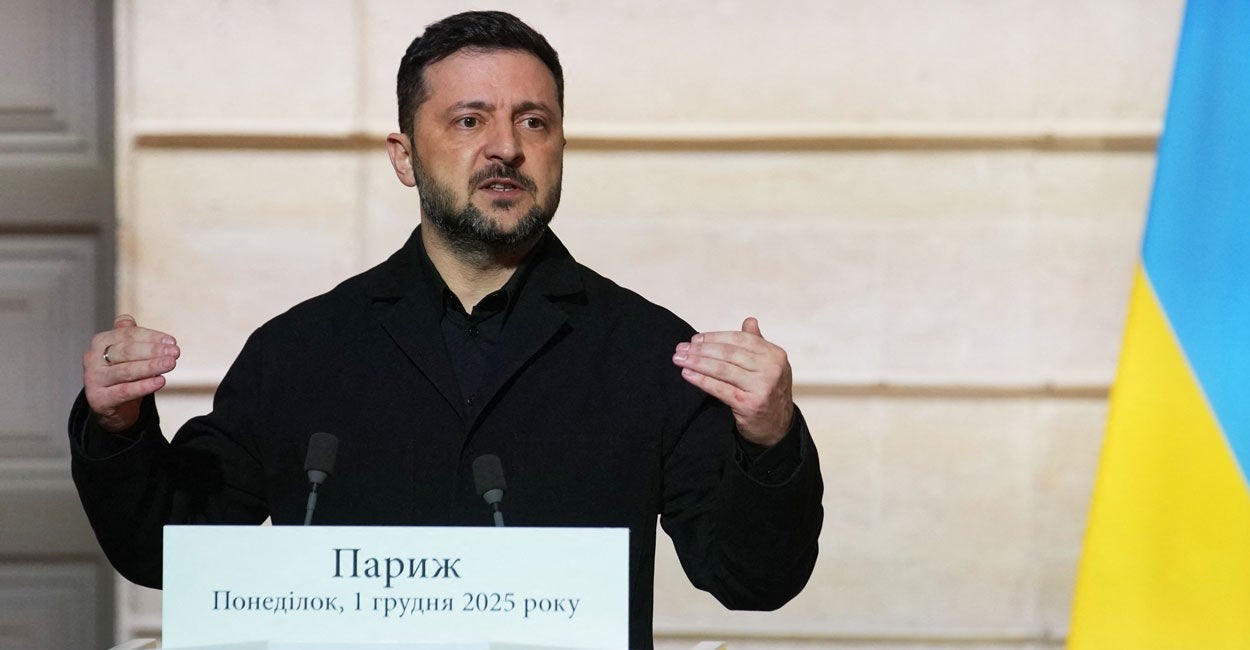Trump touches down in Canada for G7 summit. Here's what's on the menu.
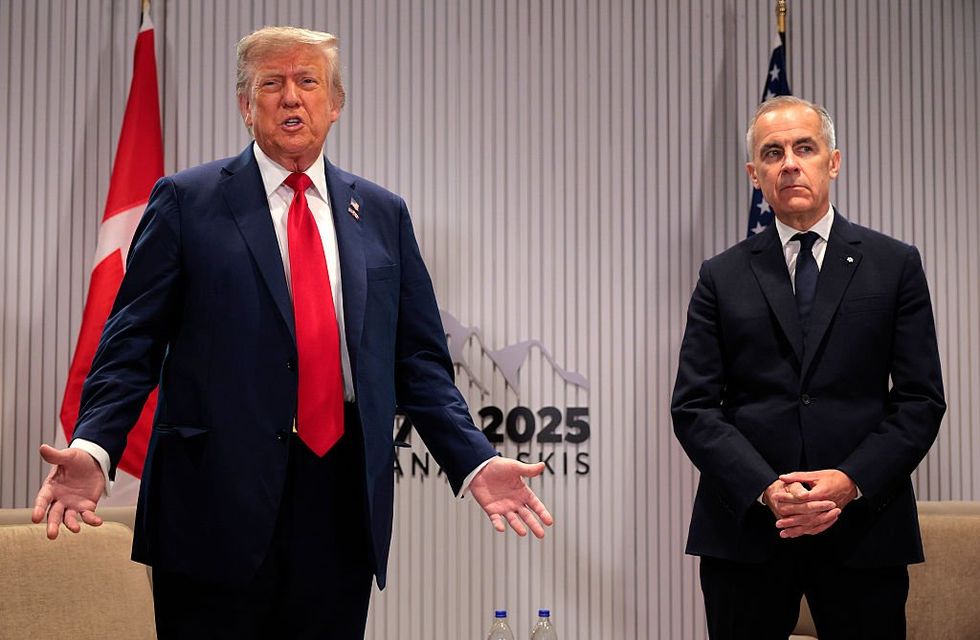
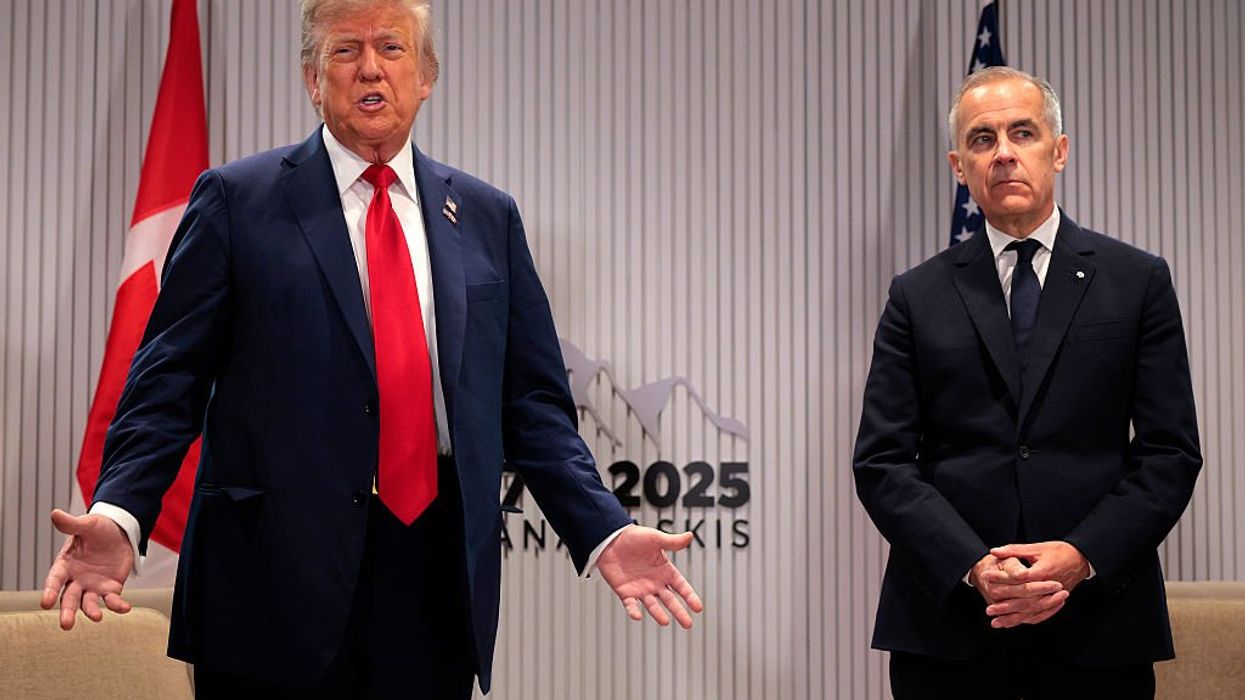
The Group of Seven is an informal bloc of first-world nations consisting of Canada, France, Germany, Italy, Japan, the United Kingdom, and the U.S. that has met since the 1970s to coordinate on matters of international security, human rights, economic governance, and technological matters.
Amid rising military tensions between Israel and Iran, unresolved tensions between Ukraine and Russia, and ongoing extranational vexation over his tariff strategy, President Donald Trump touched down in Canada on Sunday for this year's summit in Kananaskis, an unincorporated Alberta community in the Rocky Mountains.
Leaders from various non-G7 member nations will also be present at the summit, including leaders from Australia, Brazil, India, Mexico, and Ukraine.
A senior U.S. official told Blaze News that Canada "worked with G7 colleagues to craft short, action-oriented leaders' statements on key issues of common interest. Working discussions will, but not limited to, cover trade and the global economy, critical minerals, migrant and drug smuggling, wildfires, international security, artificial intelligence, and energy security."
These topics correspond to the priorities for the summit identified by Canadian Prime Minister Mark Carney's office earlier this month. The prime minister's office noted that other discussions will include a "just and lasting peace for Ukraine and other areas of conflict around the world."
"The president is eager to continue to pursue his goals in all of these areas, including making America's trade relationships fair and reciprocal, unlocking new markets for American energy exports, and positioning the U.S. to be the world leader and international partner of choice on AI technologies," the senior American official told Blaze News.
The official added, "We appreciate Canada’s cooperation in the planning of this summit and their choice of a gorgeous location in Kananaskis for these important conversations."
RELATED: Listen up, America: Everything you've been told about Canada is a lie
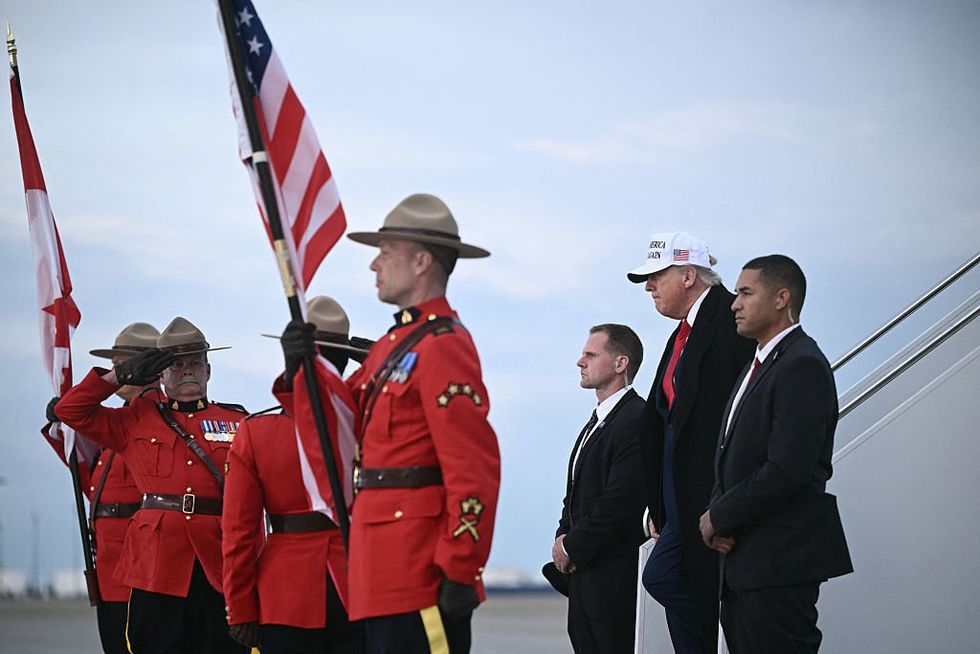 Photo by BRENDAN SMIALOWSKI/AFP via Getty Images
Photo by BRENDAN SMIALOWSKI/AFP via Getty Images
Officials from the host country, which Trump has slapped with numerous tariffs in recent months and repeatedly suggested should become the 51st state in the union, appear keen to ensure that the president has a good time to avoid a repeat of the kind of breakdown of goodwill that followed the 2018 G7 summit in Quebec.
Trump left that summit early after reportedly suggesting to the late Prime Minister Shinzo Abe that an injection of 25 million Mexicans into Japan would lose Abe his next election and telling French President Emmanuel Macron during a conversation on Iran and terrorism that Macron had a special familiarity because "all the terrorists are in Paris." Trump then remotely torpedoed a joint G7 statement on account of what he claimed were "false statements" from former Canadian Prime Minister Justin Trudeau, who he emphasized was "weak."
'Press reports stress that the participating countries are trying to bend over backward to avoid antagonizing President Trump.'
"The backdrop to this G7 are the tensions between the U.S. and the other G7 members," Christopher Layne, professor of international affairs at the Bush School of Government and Public Service at Texas A&M University, told Blaze News. "The leading causes of division are Ukraine, President Trump's tariffs, and the administration's apparent break from the institutions and norms upon which the post-1945 liberal rules-based international order rested."
Layne noted that the G7s Trump attended in his first term were "openly acrimonious."
"In an attempt to avert a rupture this time, Canada, the host country, determined that there will be no joint communique issued when the meeting ends," continued Layne. "Press reports stress that the participating countries are trying to bend over backward to avoid antagonizing President Trump. In this atmosphere, it is unlikely that the meeting will produce any major breakthroughs, though the U.S. will seek progress on several issues, including trade/tariffs, drug smuggling, and migration flows."
Carney — the self-identified "European" World Economic Forum regular who all but guaranteed British economic decline while governor of the Bank of England, then replaced Justin Trudeau to become Canadian prime minister in March — met Sunday with British Prime Minister Keir Starmer in Ottawa and agreed to establish an economic and trade working group and to strengthen military cooperation both bilaterally and through NATO.
RELATED: The Great Reset just got a North American enforcer in Ottawa
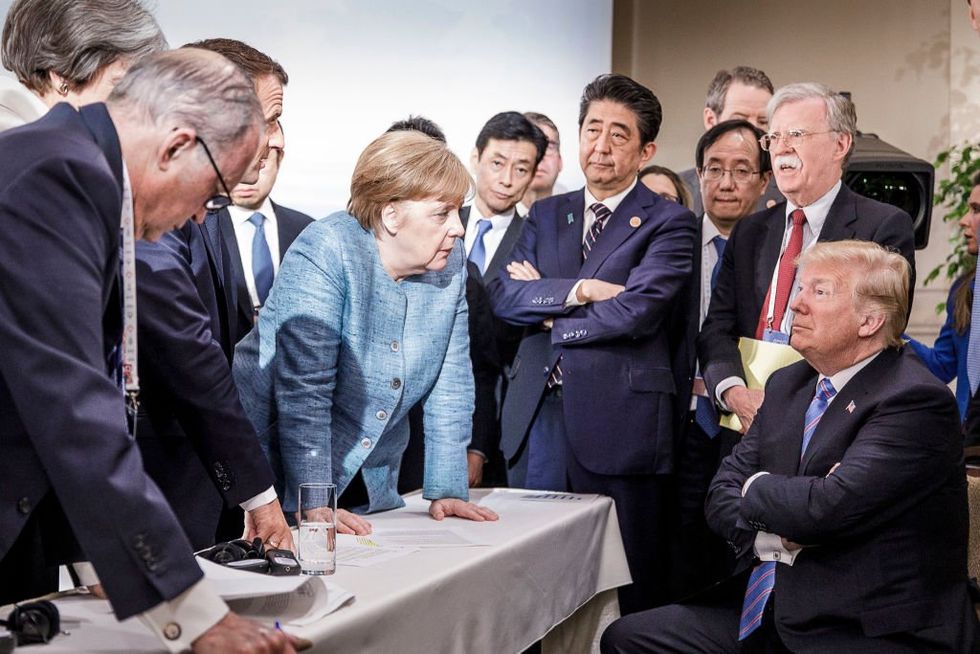 Trump at the G7 in Charlevoix, Canada, in 2018. Photo by Jesco Denzel /Bundesregierung via Getty Images
Trump at the G7 in Charlevoix, Canada, in 2018. Photo by Jesco Denzel /Bundesregierung via Getty Images
Carney then headed west for his one-on-one meeting Monday morning with Trump ahead of the official start of the summit.
A day after Secretary of State Marco Rubio and Anita Anand, the Canadian minister of foreign affairs, affirmed the "important relationship" between their respective nations, Carney welcomed Trump to the summit, wishing both the president and the U.S. Army happy belated birthdays and emphasizing the importance of American leadership at the G7, which is apparently celebrating its 50th birthday.
'I'm sure we can work something out.'
Trump once again bemoaned the removal of Russia from the G8 following its invasion of Crimea, noting that talks about Russia would be easier with it representatives at the table.
"The G7 used to be the G8. Barack Obama and a person named Trudeau didn't want to have Russia in," said Trump. "And I would say that that was a mistake, because I think you wouldn't have a war right now if you had Russia in, and you wouldn't have a war right now if Trump were president four years ago."
— (@)
Concerning the immediate talks ahead, Trump told reporters, "Our primary focus will be trade, and trade with Canada."
"I'm sure we can work something out," said the president, emphasizing that he's a "tariff person," while Carney "has a more complex idea but also very good."
Carney's office did not immediately respond to Blaze News' request for comment.
Professor Layne suggested to Blaze News that "even though this is not formally a NATO conference, President Trump is certain to push for increased defense spending from U.S. allies in East Asia and Europe."
"President Trump approaches multilateral fora with extreme skepticism," Rachel Rizzo, a senior fellow at the Atlantic Council's Europe Center, told CNN. "He does not view these organizations as ways to deepen and expand American power and influence. He sees these fora as constraining America, and I think that’s something to remember as he goes into this. He is skeptical towards the G7’s consensus-driven approach."
Like Blaze News? Bypass the censors, sign up for our newsletters, and get stories like this direct to your inbox. Sign up here!
Originally Published at Daily Wire, Daily Signal, or The Blaze
What's Your Reaction?
 Like
0
Like
0
 Dislike
0
Dislike
0
 Love
0
Love
0
 Funny
0
Funny
0
 Angry
0
Angry
0
 Sad
0
Sad
0
 Wow
0
Wow
0



